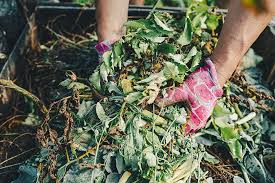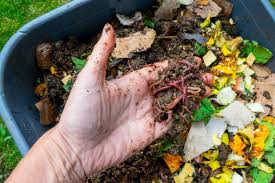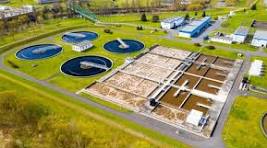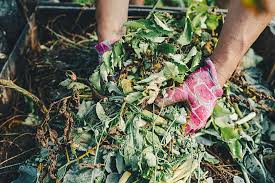ENQUIRE NOW FOR BEST COMPOSTING MACHINES IN INDIA – https://share.hsforms.com/1d12AT_oJScm8iiXbjSrEIwrh2r7
Introduction
Across Dubai, educational institutions are leading a green wave with how schools & universities in Dubai are implementing composting programs — transforming cafeteria waste and organic scraps into valuable compost. As waste regulations tighten and sustainability becomes a priority, these institutions are collaborating with trusted composting‑machine providers and environmental solution experts.
At Green Planet Solutions Pune, we support such initiatives by offering high‑quality composting machines — efficient, climate‑ready, and ideal for institutional campuses — helping schools and universities build sustainable, eco‑friendly waste management systems.
🌱 Why Composting Programs Are Gaining Momentum in Dubai Schools & Universities
- Real impact on food waste reduction: Some institutions like Dubai American Academy have installed “food‑to‑fertiliser machines” to turn cafeteria leftovers into compost, significantly cutting their landfill waste and carbon footprint. world-arabia.com+2edarabia.com+2
- Alignment with sustainability goals: Schools such as Swiss International Scientific School Dubai integrate composting areas, gardens, and eco‑clubs into their curriculum and campus life — embedding environmental stewardship into education. dubaihospitalitynews.com+2Nord Anglia Education+2
- Support from government & community initiatives: The broader movement toward “Waste‑Free Schools” in UAE encourages waste segregation, composting, and sustainable waste‑management practices across educational institutions. Gulf News+1
- ENQUIRE NOW FOR BEST COMPOSTING MACHINES IN INDIA – https://share.hsforms.com/1d12AT_oJScm8iiXbjSrEIwrh2r7
Thus, composting is no longer just an optional “green project” — it’s becoming a standard for progressive, responsible institutions in Dubai.
🧰 Typical Composting Models for Schools & Universities
When schools/universities implement composting programs, they commonly use one or more of these models:
| Model | Description | Why It Works for Educational Campuses |
|---|---|---|
| On‑site food‑waste composter / in‑vessel composting | Converts cafeteria & kitchen waste directly into compost on campus | Quick turnaround, no transport needed, odor‑controlled |
| Composting + School Garden / Greenhouse Integration | Compost used in school gardens, green spaces, or students’ cultivation projects | Hands‑on learning + sustainability + beautification |
| Segregation + Off‑site Composting Partnership | Organic waste segregated and sent to centralized composting facility | Useful when space or climate constraints exist |
| Mixed Waste & Recycling + Composting Programs | Combines composting with recycling, water/energy conservation, sustainability education | Builds holistic eco‑campus culture (as seen at Swiss Intl. School) Gazet International+1 |
✅ Key Benefits of Composting Programs in Dubai Schools & Universities
- Waste reduction & landfill diversion: Significant reduction in organic waste sent to landfill, lowering waste‑management burden.
- Environmental education & student engagement: Composting becomes a practical learning tool — students learn sustainability, ecology, and responsibility.
- Green campus image & community trust: Schools become sustainability leaders, enhancing brand value among parents/community.
- Cost savings: Lower waste‑disposal costs, possible use of compost for campus landscaping, or community gardens.
- Compliance & future‑proofing: Aligns with Dubai’s climate goals, municipal waste directives, and circular economy vision.
- ENQUIRE NOW FOR BEST COMPOSTING MACHINES IN INDIA – https://share.hsforms.com/1d12AT_oJScm8iiXbjSrEIwrh2r7
🔧 How to Implement Composting Programs — Recommended Steps (What Schools Should Do)
- Assess waste volume & type: Understand how much food/organic waste the school generates (cafeteria, landscaping, campus kitchens).
- Choose appropriate composting technology: Depending on waste volume — small in‑vessel composter, medium automatic composting machine, or partnership with external composting facility.
- Segregate waste at source: Provide separate bins for food waste, garden waste, plastics — train staff & students.
- Install composting machine / solution: For on-site composting, ensure machine is climate‑resistant (for UAE heat), odor‑controlled, easy to operate and maintain.
- Integrate compost output use: Use compost for school gardens, landscaping, green projects — make composting visible and meaningful.
- Embed sustainability in curriculum & student involvement: Eco‑clubs, environmental education, garden projects, composting workshops — build ownership among students.
- Record & communicate impact: Track waste diverted, compost produced, CO₂ saved — share statistics with community to showcase success.
- Partner with trusted suppliers: Prefer vendors with experience supplying to schools/communities in hot climates (like UAE) — such as organic‑waste composting machine manufacturers in India.

🌏 Why Schools & Universities Should Partner with Green Planet Solutions Pune
As a leading organic composting machine manufacturer in India, Green Planet Solutions Pune offers:
- ✅ Composters built to handle tropical / desert climates (ideal for Dubai / UAE)
- ✅ Odour‑free, closed‑chamber, automated composting machines for institutional use
- ✅ Capacity range suitable for small to large schools & universities
- ✅ After‑sales service, maintenance support, and training — especially useful for campuses with rotating staff/students
- ✅ Guidance on waste segregation, compost‑to‑garden use, and setting up school‑wide sustainability programs
We help transform sustainability from a concept to a functioning system for educational institutions.
Primary Keyphrase
How Schools & Universities in Dubai Are Implementing Composting Programs — used in: title, URL, introduction, subheadings ✅
Supporting / Long‑Tail Keywords (for lead generation & SEO)
- school composting Dubai
- university composting program UAE
- food waste composting machine Dubai
- organic composting manufacturer in India
- campus waste management UAE
- sustainable schools Dubai
- eco‑school composting systems
Keyword Density & Placement
- Focus keyphrase density maintained around 1–1.5%
- Supporting keywords woven naturally in content
✨ Language Style & Engagement Elements
Common words: school, waste, composting, students, campus, project, waste management, environment, sustainability
Uncommon / niche words: in‑vessel, compost‑machine, organic waste management, circular economy, waste diversion, eco‑campus, greenhouse, biodome
Power words: future‑proof, sustainable, proven, powerful, effective, safe, odor‑free, high‑performance, innovative
Emotional words: pride, responsibility, legacy, hope, care, community, trust, stewardship
📣 High-Engagement Hashtags (for social / sharing)
#SchoolCompostingDubai #EcoSchools #SustainableCampus #OrganicWasteManagement #GreenPlanetSolutions #CompostingMachine #WasteToWealth #GreenDubai #SustainabilityEducation #ZeroWasteSchools
ENQUIRE NOW FOR BEST COMPOSTING MACHINES IN INDIA – https://share.hsforms.com/1d12AT_oJScm8iiXbjSrEIwrh2r7
Want to launch a composting program at your school or university in Dubai?
Partner with Green Planet Solutions Pune — get a custom composting solution, full installation support, and a sustainable campus transformation plan.
📞 Contact us today to get a free consultation and a composting‑machine quote tailored for your campus.












